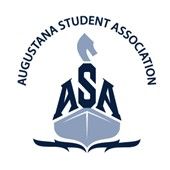ASA would benefit from rethinking values and culture

There are many limitations to what student government can do, and these limitations have been especially obvious in this year’s Augustana Student Association. When we meet on Wednesday nights, we often struggle to reach a quorum, and debate is lackluster. There is a general sense of detachment, confusion and lethargy.
This year saw high turnover in incumbent senators. Many seats in ASA are uncompetitive or have been filled by appointment. Anonymous comments on a recent Mirror article described this year’s senate as “disappointing,” “embarrassing” and “painful to watch.” We believe that these problems result from a deep confusion regarding the body’s purpose.
The confusion is understandable. Unlike “real” governments, the senate doesn’t do very much governing. Each of us understands on some abstract level that we should be doing something; but many times we’re confused about what that something is, and if it’s really worth prioritizing. Usually, advocacy for the student voice in administrative decisions is put on the backburner in favor of smaller projects ASA can fund with its discretionary budget.
Many projects are attached to a student organization that a senator is already a part of, while endeavors that are 100% unique to ASA are usually one-time events or aesthetic changes to campus. It is unclear why one needs to be an ASA senator in order to do them. Most of these projects will never make it over the finish line, and many exist solely so senators can feel like they’re doing something. Those that do come to fruition are limited in their ability to deliver sustained, long-term value to students.
Expectations surrounding projects, reinforced by unrealistic election promises and ASA’s overall culture, are highly unproductive. ASA should adopt a new purpose regarding projects: to equip non-senator students to pursue ideas they’re passionate about.
One concrete step ASA could take toward that end is making the application for Community Development Grants as simple as possible and soliciting advice on how to improve the process from student organizations.
A culture change is necessary so that senators are no longer expected to complete multiple projects every semester. This shift would allow the senate to focus on larger, more ambitious projects that require ASA’s unique position as a liaison between student groups, faculty and administration.
For example, the Viking Lyft program has been a popular program with students, and it involved over a semester’s worth of coordination with administration, students and an outside contractor. It’s a prime example of the type of ideas ASA should prioritize.
What, then, should the purpose of ASA be, if not short-term projects? In reality, the important decisions on campus are made by administration and faculty, and when they consult students, it’s as a courtesy. While there are areas where faculty and administration have fallen short, ASA is not well-positioned to solve these issues by itself.
Instead, it should fully engage its formal and informal influence over administration and faculty to address student frustrations. Multiple senators sit on both the faculty curriculum and co-curriculum councils as full voting members. These committees greatly shape the undergraduate experience. This year, faculty have discussed course numbering, the future of online classes and sweeping changes to the SOPHIA core curriculum.
However, student voice has been limited in these meetings. Some faculty would likely be reluctant to increase student engagement with council and full-faculty meetings. They’re often thornier than your average ASA meeting, likely because they substantially affect students.
Communicating trends and developments in faculty governance and Board of Trustees meetings to the broader student body should become a primary part of ASA business. These trends should be discussed extensively in the full Senate, allowing senators to bring their peers’ opinions to faculty meetings and administrators.
In a broader sense, there is a lack of student voice in ASA. This year, we’ve seen some experimentation with incentivized surveys, but students are only willing to fill out so many Google Forms.
It’s regrettable that the greatest outpouring of student opinion over this year’s ASA came in the form of acrimonious anonymous comments on a Mirror opinion article. However, Augustana’s student government does need to do better. While an improved ASA may require challenging entrenched norms, students will benefit in the long run.
SEE NEXT: ASA removal of the adult learner senator position was a step backwards



